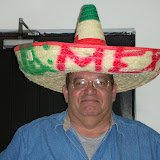reversing words : 反词语 ?
goulnik
September 14, 2007, 07:14 AM posted in General DiscussionQuite a few 2-character words are still meaningful when the characters are reversed, same meaning, verb become noun, or different meaning. I think it would be useful to systematically point it out, would come at little cost as new characters are acquired. Here's some examples from a few recent lessons, I'm sure there are lots of others :
期满 qīmǎn / 满期 mǎnqī
故事 gùshi / 故 shìgù
光亮 guāngliàng / 亮光 liàngguāng
学农 xuénóng / 农学 nóngxué
下乡 xiàxiāng / 乡下 xiāngxia
警告 jǐnggào / 告警 gàojǐng
喜欢 xǐhuan / 欢喜 huānxǐ
性感 xìnggǎn / 感性 gǎnxìng
美貌 měimào / 貌美 màoměi
rich
October 01, 2007, 05:52 PMIs MexicoBob and BobMexico one too? Ha ha ha. (in reference to the file goulniky somehow accidentally posted here)
Kyle
September 14, 2007, 07:43 AM=O That's amazing. Does anyone know what the English actually breaks down to? Or has English been so innundated by other languages that it no longer has roots that can be so easily broken down?
lunetta
September 14, 2007, 09:31 AMI think the English word for hippo derives from Greek. In Danish it's "river horse" as well (Flodhest). Etymology is so much fun and it would be great if Cpod could do something in depth on a word once in a while. Maybe it could be a job for Amber in Dear Amber as etymology can be a great way to highlight the culture and social rules of the people using a particular language.
Lantian
September 14, 2007, 10:54 AMFRENCHIE - a common question I get is why English has so many French words. Usually I just mumble and say I dunno...but actually I do know! Here I share it with you all (courtesy The Language Instinct, Pinker, 1994). I'm sure much of Chinese dialects and word variations developed in a similar fashion. Note: [abc] are my comments In 1066 William the Conquerer invade Britain, bringing with him the Norman dialect of French, which became the language of the ruling classes. [So they spoke French in England!!] When King John of the Anglo-Norman kingdom lost Normandy shortly after 1200, English reestablished itself as the exclusive language of England, though with a marked influence of French that last to this day in the form of thousands of words and a variety of grammatical quirks that go with them. [grammatical quirks not French people quirks?!] This "Latinate" vocabulary--including such words as donate, vibrate, and desist--has a more restricted syntax; for example, you can say "give the museum a painting" but not "donate the museum a painting," "shake it up" but not "vibrate it up". [A recent variation comes to us from Amber, where one CAN "do it up".] ...The Latinate words also trigger many of the sound changes that make English morphology and spelling so idiosyncratic, like electric-electricity, and nation-national. [Cpod, pod'ical, Cpodelicious, Cpodmanical, Have you had your Cpod today?]
goulnik
September 19, 2007, 04:49 AMjust came across 忌妒 (jìdu) / 妒忌 dùjì to be jealous, to envy
mark
September 19, 2007, 05:53 AMI often transpose characters, even when they aren't meaningful after transposition. I'm not sure why, but if I don't quite remember a word, it often comes out backwards.
dan78cj5
September 19, 2007, 06:26 AMMark, I have the same problem. For a lot of vocabulary the combination of two characters 'makes sense' but the order doesn't seem important enough in my memory for it to stick with me, so when it comes out, its often reversed. Can't fingure out when or why.
henning
September 14, 2007, 07:31 AMKyle, did you know "hippo" is "Flusspferd" in German? And guess what "Fluss" and "Pferd" stand for. Exactly: 河马
goulnik
September 19, 2007, 07:45 AM...of course by writting 写字 (xiězì) I meant handwriting 字迹 (zìjì), no such problems with typing 打字 (dǎzì)
Kyle
September 19, 2007, 08:36 AMI do that with tone sometimes--switch the tones of a disyllabic (sp?) word.
newerbie
September 21, 2007, 10:57 AMThere're symmetrical sentences as well. To name a few... 上海自来水来自海上 黄山落叶松叶落山黄 香山碧云寺云碧山香 圣君识能臣能识君圣 贤妻望夫良夫望妻贤 海上行飞船飞行上海 马赛推广局广推赛马 落雨花愁夜愁花雨落 瓢饮千杯水杯千瓢饮 行路世道苦道世路行 心存良善欲存善良心 和风迎丝柳丝迎风和 雾岚傍高山高傍雾岚 海上明月生月明上海
goulnik
September 23, 2007, 06:40 AMThanks newerbie, never come across these palindromes before, 回文诗 (huíwénshī) I guess. Did you make them up or are they common, much as 绕口令 (ràokǒulìng) tongue twisters?
goulnik
October 01, 2007, 05:56 AM自私 (zìsī) selfish 私自 (sīzì) privately; secretly; without permission
goulnik
October 01, 2007, 04:37 PM ??
??
goulnik
October 01, 2007, 04:38 PMoops, wrong code, wrong place :-(
goulnik
September 19, 2007, 07:41 AMmark, do you transpose visually or orally? I also often mix up the order when I speak, but much less if I write words I remember visually. What I tend to do is collapse them, write the radical of the first with the phonetic of the second or some such, e.g. 结婚 -> [纟+昏] which is non-existent in this case.
Kyle
September 14, 2007, 07:24 AMAh, Chinese is so... 可笑. Personally, I'm a fan of the very obvious translations. For example, 河马 river horse (hippo) 气球 air ball (balloon) 病人 sick person (patient) and the list goes on....